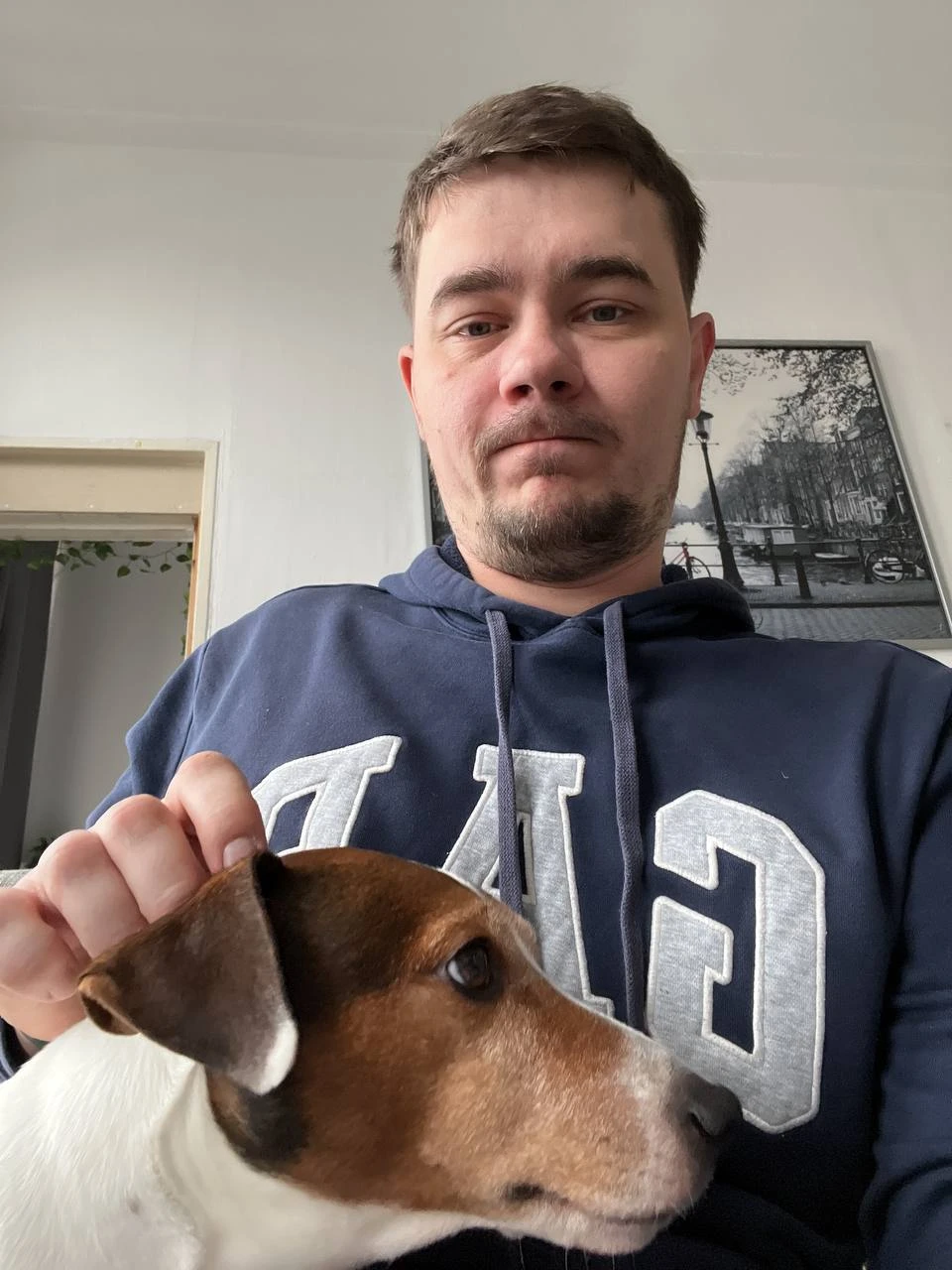Nikolay
lawyer
39 years old
teacher
Peter

A2
Nikolay's current level
А1
Nikolay's level at the time of the entrance testing and interview
9 months
Nikolay's studied at Duck English
I immediately rejected all well-known language schools, express methods, intensive courses, and "native speakers." I know a few of those who have been engaged in all these fascinating methods for years with zero results.
What made you start learning English?
I've always loved English and wanted to speak it fluently and understand everything. Having some knowledge of English allowed me to work for foreign companies. Of course, my proficiency was not sufficient, and I expected exposure and dismissal with disgrace at every meeting with foreign colleagues. In addition, some time ago, my wife and I decided to try relocating abroad and, naturally, wanted to be well-prepared.
I immediately rejected all well-known language schools, express methods, intensive courses, and "native speakers." I know a few of those who have been engaged in all these fascinating methods for years with zero results.
I saw Lera and her excellent language threads on Twitter. I wanted exactly that kind of approach and quality. That's why I joined her waitlist. No, not just a waitlist. The Waaaaaaaaaaitlist.
No, not just a waitlist. The Waaaaaaaaaaitlist.
What was your language learning experience before starting classes?
My first encounter with the language happened through video games on a Dendy console and Donald Duck bubblegums. My parents picked up on my interest and sent me to a tutor - an older woman with lots of experience. I still remember my first three words: a cat, a rat, a bat, and the tremendous stress of going to the dwelling of that strange lady.
I managed to learn the basics, wasn't afraid to speak, and eagerly anticipated learning it properly in school. However, there was no English in school, and I ended up learning French, which I came to love just as much as English.
After that, I was stranded with my English skills all alone. My love for video games, especially quests, significantly expanded my vocabulary. The major drawback of that vocabulary was that I could read and understand but had trouble pronouncing words correctly.
In high school, I took English classes and managed to improve my skills, which allowed me to communicate and understand the language reasonably well.
In college, I continued with English, and I was one of the best in my class. However, I can't boast about it because English was such an easy subject that all it took for a guaranteed pass was reading a simple text and confidently saying "the."
Overall, my experience with learning English can be described in one word - unsystematic.
How did you feel before starting the classes?
I evaluated the quality of my skills much lower than others did. I wasn't afraid to speak, could read reasonably well, and had become adept at handling corporate English and professional texts. My existing knowledge was sufficient for job interviews and communicating with expatriates on work-related matters. That's why I confidently listed an intermediate level of proficiency on my resume. However, this confidence crumbled when it came to engaging in conversations, especially more casual small talk about the weather.
How do you feel now? What changes have occurred?
The changes came in small, almost imperceptible steps. At times, it seemed like there was no progress at all. Speaking became more challenging as I found myself contemplating correct sentence structure and grammar, and my writing became slower.
Then, an unexpected relocation to an environment where almost everyone spoke English occurred. Job interviews started, and daily life unfolded in English. It was at that moment that I said to myself, "WOOOW!"
For me, it's still incredible that I can confidently go through interviews, even with some mistakes. No more "ums" and "uhs." Small talk and casual conversations have become enjoyable rather than triggering imposter syndrome. In short, it's a thrill and a pleasure.
How are the lessons going? What do you like and dislike?
The lessons are going exactly as I need them to. I speak a lot and write a lot. I appreciate that my teacher, Peter, allows me to speak more and then meticulously goes through the mistakes. I'm delighted to note that with each passing day, the duration of the "let's correct the mistakes" part becomes shorter.
It's great that there are several textbooks, each with its own approach. I have a favorite - "the little blue one," and others that are a bit too easy but comprehensive.
Unlike school and university, here it's perfectly fine and necessary to make mistakes. What's fantastic is that the mistakes are not only noted by the teacher but also thoroughly worked on if something isn't clear. That's why I love written assignments - I try out all the challenging and unclear aspects, which I later go over with Peter.
What do you find most challenging in the learning process?
It's challenging to evaluate my progress accurately because I’m studying with a teacher one-on-one and don't have anyone to compare myself to. However, this is mitigated by occasional group lessons. There are times when I seem to "forget" the simplest things from earlier lessons. It might be a quirk of my thinking, but I need to revisit previously learned material from time to time.
How do you integrate language learning into your daily routine?
Adapting to the rhythm of language learning was a challenge. Two lessons a week plus homework, without any exceptions or delays, became a constant in my life. Whether at work, on vacation, or while traveling, I always made time for it.
The most picturesque lesson took place at a gas station in the Alps, and the strangest one was in a small courtyard in the center of Paris, where salespeople and office workers were smoking nearby.
What motivates you to learn English?
Living abroad is the greatest motivator. Mostly, it's about building a successful career on foreign soil, and at the very least, it's about feeling comfortable in everyday life.
Reading in the original language and watching TV shows with authentic voices (by the way, the English voice of Shrek is terrible) are big motivators. It's really cool when, while rewatching something familiar, you suddenly find a joke where the translation had some awkwardness, and you're like, "Aha! That's what it was!"
What do you do besides attending lessons and doing homework? How does it help you?
YouTube is a big part of it. I watch lectures, lessons, and topics related to my current lessons. Topics in line with my current lessons are especially helpful. There are many great YouTubers out there, despite some less talented ones. I found an excellent Englishman who prepares for IELTS and provides topics in different areas once a week.
Books - classic literature when I can find the time for reading.
TV series, cartoons, movies - they are essential. Classic shows and cartoons are great as they are, but for something more contemporary and challenging, I sometimes need subtitles (and a dictionary occasionally).
Most importantly, I put into practice what I've learned immediately. People here are sociable, and it's easy to find a willing conversation partner.
What can you recommend to other learners?
Harder than starting is only not quitting. Try to clearly outline your goals and deadlines, discuss them with your teacher, and strive for them. That's exactly what I was looking for in a language school. Motivate yourself and praise yourself for successes, and everything will work out.
Master Your English Once And For All
With Our Help
еще истории наших студентов. Речь о достижении результатов
0%







